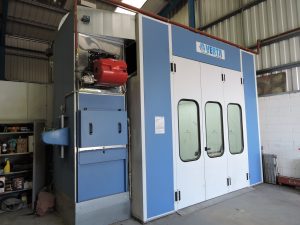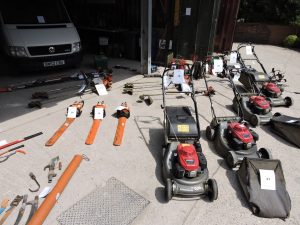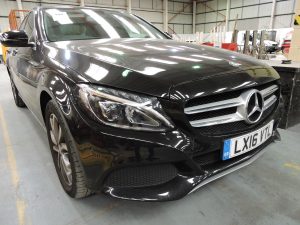What is happening to the Retail Industry?
I suspect that at the tender age of 35, I am now something of ‘shopping dinosaur’ in that I do not shop online (although admittedly my household does receive packages courtesy of my wife’s online shopping habits). I prefer instead to purchase things the old-fashioned way, i.e. actually going to a shop and seeing (maybe even touching!) the item that I plan to buy before I decide to part with my hard-earned cash.
However, it would appear that such traditional shopping is sadly, but firmly, on the decline. My inner ten-year-old will never quite get over the death of Woolworths some years ago, but more recently the insolvency of Toys R Us has startled Little Britain, leaving parents of my ilk wondering where we will be able to take the children in future for a ‘present choosing’ experience they will enjoy.
Other recent insolvencies in the world of retail include Claire’s Accessories, Maplin, Berwin & Berwin (B&B), Cloggs, Warren Evans, Justice Jewellers, Juice Corporation, Joe Bloggs, East, Nice ‘N’ Naughty Leisurewear, Barkers, Joe Delucci’s Gelato and Warwick. Further, large outfits such as New Look and Carpet Right are closing numerous stores and Mothercare have appointed KPMG to advise on a refinancing of the business.
The increasing dominance and economies of scale enjoyed by supermarkets has clearly made it difficult for more specialist shops to compete, but with online convenience shopping set to take over further this century, I believe that in future even the supermarkets will be facing difficulties attracting footfall.
I pondered some years ago, whilst studying, whether we are moving towards a warehouse dominated retail landscape whereby goods are purchased online, and the high streets are thereby turned into some kind of ‘residential and leisure hub’. However, in many parts of the UK, it appears worse than that at present with shops closing and being left vacant all over the country, causing a terrible waste of land considering the housing shortage this country is facing. It is possible that the retail industry could be facing a crisis soon and professional assistance will no doubt be needed to mitigate the potential damage that may be caused to the economy by such a crisis.
My firm, Marriott & Co., as RICS business asset surveyors, have been instructed on a number of retail related valuation and disposal exercises in the last year, generally instructed by proposed insolvency practitioners in order to ensure that a company’s assets are sold for their Market Value and that its creditors are thereby appeased and protected.
If you need professional assistance relating the valuation and sale of any retail assets, such as trading stock, fixtures and fittings, machinery, office equipment and furniture, then you need look no further than Marriott & Co. – our professional team will always provide you with sound independent advice and put our client’s best interests at the forefront of our concerns.
We are able to competently offer a company’s business assets for sale both as a whole, in an attempt to keep them in-situ as a going concern (e.g. marketing them in accordance with SIP 16), or whenever necessary on a ‘break up’ basis for sale ‘ex-situ’ by online auction or private treaty. Either way, we will ensure the assets are realised for the best possible price in the circumstances, whilst giving our clients valuable protection.
We are well versed in dealing with the intricacies of the insolvency market including fielding and managing Retention of Title (“ROT”) claims on our clients’ behalf whenever required. Do therefore call us on 01252 712083 if you think you might require our assistance.
Thomas Allman MRICS
HS2 & Compulsory Purchase Orders
The roll out of HS2 has been nothing if not controversial. With the deadline and budget stretching further and further away (the Independent recently reported that it would cost £403m for every mile of the new line) the creation and implementation of the new railway is viewed by many as an exorbitant drain of money and resources on the taxpayer, a killer of precious wildlife, and a source of great disruption to the lives of thousands of homeowners and businesses who will face a compulsory purchase order as a result.
But there must be a good reason why HS2 was given the green light in the first place, and there are, undoubtedly, many potential benefits to be had. As it set out to do, it will provide a crucial link between the South and the North of England, benefiting the ‘Northern Powerhouse’ and cutting the journey time between London and Manchester, and Birmingham and Leeds down by an hour.
It is estimated that that the new line will ease overcrowding on commuter routes, reduce the number of lorries on the road, transfer 4.5 million journeys a year from the air and up to 9 million from the road, a green initiative that nobody can argue with (except, of course, Donald Trump and his climate change denial crew). There is also the creation of 100,000 plus UK jobs to shout home about, as well as the ‘significant boost to the economy’ the line is expected to deliver.
However, whatever your own views are on HS2, it cannot be denied that being forced to move out of your home, or having to relocate or ‘extinguish’ your business can be a heart-breaking, difficult and unpleasant process (no matter the level of compensation received).
Following the Royal Assent of the High Speed Rail (London – West Midlands) hybrid Bill early last year, the government has been granted compulsory purchase powers for the construction of HS2 Phase 1. Royal Assent for Phase 2A (Crewe and Manchester) and Phase 2B (West Midlands and Leeds) will follow over the next few years. These compulsory purchase powers mean homeowners and business owners are forced out of their properties and land which will be purchased by the government or representative public body for their market value. All costs attributed to moving (estate agency & legal fees etc.) as well as disturbance compensation, and in the case of businesses loss of profits, depreciation in the value of stock and adaptations to replacement premises etc. will also be covered by the purchasing body.
As a business owner, when a relocation of your business proves impossible, or you meet other criteria to take compensation for extinguishment basis (here’s a link to the relevant government guide: https://www.gov.uk/government/uploads/system/uploads/attachment_data/file/571450/booklet2.pdf), compensation will be provided for the value of the business goodwill, any losses on a forced sale of stock, vehicles and plant & machinery, redundancy costs and the administrative costs of winding up the business, as well as any other reasonable costs or losses incurred, such as surveyor’s fees.
Marriott & Co. are RICS registered, independent and experienced Valuers and Auctioneers. We are therefore qualified to provide clients with compulsory purchase order plant & machinery valuations that they can rely on when submitting their compensation claims. Our Valuers prepare their valuations in accordance with the RICS Red Book, so our clients can be assured of the ‘gold’ standard required by our professional body and be confident that our reports will stand up to any scrutiny from the relevant authorities. We can also provide valuations of your business’s goodwill for compulsory purchase order purposes.
Our excellent disposal team can also sell your plant & machinery assets, in very short order if required, to achieve the highest possible realisation for business extinguishment purposes. Recently our team at Marriott & Co. were instructed to value and sell the business assets from the well-known White Rose Laundries in North Acton, as part of its compensation claim, the business having been which had been handed an HS2 compulsory purchase order. We were subsequently instructed to sell the business assets in short order with a sale of the assets in early December 2017, and completed the disposals in time for the HS2 Contractors to close the road, with chance of extension, on Wednesday 10 January 2018.
The Marriott & Co. team performed excellently within the tight timescale, lotting up the assets, creating the auction catalogue and marketing the sale by Wednesday 13 December 2017, leaving a week for bidding, further marketing and the opportunity for viewing from interested parties (all while the business was still trading). Despite being close to the Christmas holidays, Marriott & Co.’s disposal team achieved a terrific realisation for the assets in the online auction, meeting and exceeding reserves in a great result for our client. But of course, work didn’t stop there for the disposal team who worked before, after and over the Christmas period, collecting and chasing payments, arranging appointments to collect, and overseeing the collection of the considerable commercial laundry equipment and associated plant (no mean feat!) by the absolute deadline of Tuesday 9 January 2018.
We understand that businesses facing compulsory purchase, are often undergoing a turbulent and stressful time and we strive most of all to make the process of valuing and selling your business assets and plant and machinery as smooth as possible. Our Valuation & Disposal teams can be relied upon to act with the utmost integrity, discretion and professionalism. If you require some advice on a compulsory purchase order on your business or think you might require our services in this matter and would like a no obligation quote, please do call the office today on 01252 712 083.
By Frances Smithson BA (Hons)
(Opinions expressed in this blog are the author’s personal views)
Plant & Machinery Auctioneers: The Dos & Dont’s!
Marriott & Co. is a highly professional, independent RICS Regulated firm of Plant & Machinery Auctioneers.
The firm’s membership of the RICS ensures we must demonstrate its five professional and ethical standards meaning that we always: (1) act with integrity, (2) provide a high standard of service, (3) act in a way which promotes trust in the profession, (4) treat others with respect and (5) take responsibility.
We have been undertaking Auction Sales of plant & machinery throughout our 31-year history. For those of you who are not familiar with the comprehensive service that we provide, the following points offer some guidance as to what we hope may set us apart from some other plant & machinery auctioneers:
| What we do | What we do NOT do! |
|---|---|
| Prepare a formal Red Book valuation of the assets to be auctioned, in order to be able to recommend and agree appropriate reserve prices with the seller. The valuation cost can be included in the selling commission when appropriate so that no upfront charge to the seller is made | Estimate reserve prices on a whim and / or without agreeing them to ensure we do not sell assets for significantly less than their market value |
| Have a comprehensive ‘Seller’s Agreement’ for both the auctioneer and the seller to sign and thereby agree terms and fees at the outset. This is especially important for new clients. | Fail to agree terms of engagement and as a result end up in dispute with our clients regarding what is expected of us and / or what we may charge |
| Attend site to lot up, taking full detailed descriptions of assets, sorting through minor items, and displaying each lot attractively for sale with photographs | Ask the seller to send us the descriptions and photographs and / or give poor, inaccurate descriptions of the lots thereby deterring potential buyers from bidding |
| Carry out a risk assessment to identify and mitigate any hazards so far as is practically possible | Ignore potential health safety issues and hazards at the auction site thereby putting our staff and bidders at risk whilst attending the site |
| Upload the assets to our auction website which uses professional online auction software to allow competitive bidding to take place electronically | Carry out live auctions, which many modern buyers are disinclined to attend |
| Undertake bespoke professional marketing for every sale in order to ensure that maximum possible bid prices are achieved and we can confidently recommend the highest offers to our client | Fail to market the assets properly thereby resulting in a lack of competitive bidding and disappointing realisations |
| Deal with all queries from potential buyers promptly and effectively | Fail to answer reasonable buyer questions when it was possible to do so, thereby resulting in them losing interest |
| Advise buyers of any known faults by including the fault in the asset description | Omit known faults from the lot description in order to mislead buyers into bidding more than they would have done otherwise |
| Ensure that fair bidding takes place in accordance with UK auction law | Bid in the auction ourselves, above or below reserve, as we deem this to be ‘creating a false market’ |
| Obtain instructions for safe use wherever possible, obtain buyer waivers / undertakings for potentially unsafe goods and exclude assets whenever appropriate | Put buyers, our clients, and ourselves at risk by breaching health and safety regulations, e.g. selling assets we know to be unsafe without informing the buyer |
| Invite viewings of the assets personally, keep a first aid kit on site and supervise viewers to ensure they are safe, have signed in and out for fire safety and have explicitly agreed to the Health & Safety rules on site | Refuse to allow viewings when it is possible for them to take place, and / or negligently supervise viewings by ignoring health and safety issues / hazards |
| Have no financial interest in the assets and to always be mindful of our overriding duty to act in our client’s best interests | Trade in plant & machinery as a ‘side line’ thereby causing potential conflicts of interest and a temptation to ‘bid people up’ and potentially ‘buy machines in’ when they have not done as well as hoped in the auction |
| Invoice purchasers and receive payment for lots which have met reserve immediately after the auction and take our client’s instructions for lots which have not met reserve (which are usually few and far between) negotiating improved offers wherever possible | Fail to keep our client informed about the progress of the auction and then sell lots which have not met reserve without receiving instructions to do so |
| Obtain health and safety method statements from buyers prior to allowing the removal of heavy machinery etc. | Let buyers turn up to site unprepared for how they are going to remove the lots, thereby causing delay and potential conflict |
| Oversee removals of assets, supervising buyers to ensure they comply with their method statements | Allow buyers to remove machinery unsupervised and / or unsafely without having considered potential hazards and required safety equipment |
| Account to our clients promptly with their monies that have been safely ring fenced in our RICS Regulated client account | Put our clients at potential risk by holding the realised funds/trust funds in any account other than our designated client account |
By Thomas Allman MRICS
The Carillion Collapse
The recent Compulsory Liquidation of Carillion was a complete shock to the UK economic and political system. It has been reported that Carillion’s involvement in low margin fixed price contracts (mainly with the Government), and a resulting inability to remain profitable when problems occurred, was the significant reason behind its failure. The ‘chattering classes’ will inevitably focus on such issues and who is to blame for the current situation, demanding a Public Enquiry etc. and questioning political policies. Meanwhile, PwC will no doubt have their hands full with the financial and legal ramifications of Carillion’s downfall for years to come. However, the most pressing issue at hand is actually how to prevent severe repercussions for Carillion’s partners and subcontractors.
The Specialist Engineering Contractors Group speculated that a significant proportion of the 30,000 SMEs who are creditors of Carillion, could be at risk of insolvency as a result of the current situation. With Speedy Hire and Van Elle immediately reporting huge potential losses following the announcement of the Liquidation, it is clear that many of Marriott & Co’s insolvency and restructuring clients’ will be required to provide advice in order to minimise the negative impact of Carillion’s downfall for the wider economy.
The Carillion task force that the Government has established, chaired by Business Secretary Greg Clark, appears to have started the ball rolling at least in agreeing that Lloyds Bank, HSBC and RBS will provide a £225 million fund to support SMEs affected by Carillion’s insolvency. This should serve to stem the impact of the £1 billion that is owed to small suppliers by Carillion. Informal guides to survival for firms affected are already being published, for example the following:
Carillion Insolvency Advice for Businesses
Such guides are certainly useful. However, as per the last point made, businesses must be prepared to seek professional advice. As such, all of us involved in the world of insolvency need to be prepared for the potential requirement for our advice over the coming months.
As a highly experienced RICS Regulated firm, Marriott & Co. is well placed to assist insolvency practitioners with Red Book valuations and professional, independent sales of businesses and assets. We successfully dealt with the valuation and auction sale of the plant & machinery last year of what was effectively a smaller version of Carillion, a Kent based civil engineering company Livis Limited (In Liquidation). We are pleased to advise that the potential dividend for creditors from asset realisations was certainly maximised as a result of our involvement, with the online auction we ran proving extremely successful and well exceeding the insolvency practitioner’s expectations.
If you or any of your clients have been affected by Carillion’s downfall and think you may require our advice or services, in terms of asset valuations or sales (intangible or tangible), please do not hesitate to contact us on 01252 712083. We would be pleased to provide you with a no obligation proposal for assisting with such matters.
By Thomas Allman MRICS
Director of Valuations
2017 – What we’ve been up to so far
The Disposals team here at Marriott & Co. aren’t sure where 2017 has gone. In fact, we have been so busy, we’re afraid that blog writing has rather gone out the window! But, we think it is about time we got around to telling everyone what we’ve been up to this year.
A number of online business asset auctions, private treaty sales and business sales have been keeping us occupied, among them glass laminating and glazing equipment, concrete pump lorries, and a paint spray booth oven, to name a few. Frances, the newest member of the team, has certainly had to quickly broaden her knowledge of a wide range of industries and their machinery! And she recently conquered the steering of a pallet truck, which she was rather delighted about.
We have also been fortunate to manage some very interesting and, not to blow our own trumpet (well, maybe a little bit!) very successful online business asset auctions this year.
Following the sad death of Ed Dubois and the resulting liquidation of his iconic company Dubois Naval Architects Ltd, Marriott & Co. were instructed to sell the business assets on behalf of the Liquidator back in February. The assets included the intellectual property, which included all the original drawings and designs for Dubois boat builds as well as the work in progress to complete the naval architectural responsibilities of a 58m superyacht, one of the world’s largest. The build has now finished and she successfully completed her sea trials in the Summer.
Other lots in the auction comprised the display models of several previous designs, and a RIB. The sale attracted worldwide interest and considerable press coverage, with all lots exceeding reserve in an excellent result for the Liquidation.
From the Liquidation of one well-known company to another. An instruction that followed shortly after was for the disposal of assets from Denmans Garden Limited, a popular gardens and plant centre near Arundel. Many of the impressive garden statues, architectural urns and planters familiar to visitors of the garden were included in the sale (of over 200 lots), such as the 4metre high (!) cast steel urns and pair of bronze lions. Again, the sale was an overwhelming success, producing what our client called a “stunning” result, that again had caught the attention of the press. We just hope we haven’t caused too much garden envy amongst the West Sussex neighbours.
We were of course delighted with the result, and it was of great satisfaction to see our hard work produce such an outcome. Although the resulting collection days were tinged with sadness, with many long-time, returning visitors upset to find the site closed. And we won’t tell you how many grown men it took to remove the cast bronze fountain!
Shortly after, ‘Marriott Marine Sales’ struck again with a private yacht collector’s instruction to sell the contents of his barns. This was the ultimate ‘barn find’, and Judith, Director of Disposals, had an exciting few days discovering the treasure trove of vintage items hidden away. For aside from the very special boats for sale (including two 6M Classics, a Freedom 21, RCOD and a rare McNulty), there was also vintage aviation pieces comprising posters, a De Havilland Vampire ejector seat, and a Venom cockpit canopy, Swiss Airforce imperial tools, an unused and unregistered 1987 Yamaha TZR motorbike and a vintage seed storage chest (among others). A truly eclectic sale that drew a large amount of interest and kept the disposal team busy for weeks!
The Summer ended with a liquidation sale of assets from Bethwins Garden Specialists Ltd, comprising a large amount of gardening machinery, as well as some pieces of interest such as a vintage broadcast seed box and barrow and a cast bronze statue of a rearing horse. Once again, the realisation exceeded all expectations, with nearly everything finding a new home – even the two highly vocal guard dogs that kept the team on their toes while lotting up…
Most recently, we have been busy with the sale of assets from Livis Limited (In Liquidation), a civil engineering and construction company. Many of the assets included equipment and materials used on the London Underground. With over 400 lots to display in the company’s large warehouse, it took the help of a forklift truck and lots of cups of tea to get everything ready. It was another highly successful result, with even the wheelie bins proving popular.
October has seen us finalise the sale of assets from Ballards Brewery Limited, as well as launch our new auction website: https://auction.marriottco.co.uk/. Current sales include an online auction of two Mercedes vans, an online auction of garden statues, urns, terracotta pots and a variety of plants and trees, a business sale for a physiotherapy clinic, the sale of business assets from a printer services company and a USA wind power patent.
Suffice to say, the disposal team are very much in demand.
On the valuation side, we have been keeping very busy, not only with our regular corporate valuation work in the printing industry, but also with corporate valuations this year at a major UK brewery, a multi-national steel processing company, a long established timber processing plant, numerous UK sewage treatment plants, a high volume envelope producer, deluxe central London hotels and suites, a luxury yacht building company, a Cisco gold partner and a famous steelworks.
Needless to say, our valuation team are keeping their passports in date and wondering how Brexit will affect their travel arrangements!
On the insolvency side, our valuation work has been even more wide ranging. To name a few that demonstrate the variety of our work, Marriott & Co. has completed Red Book valuations this year at a catering equipment supplier, a coach and bus operator, a tyre and exhaust fitters, a debt collection agency, a cleaning chemical manufacturer, a CCTV equipment manufacturer, various construction companies, two electrical contractors, an airport equipment supplier, various shops and retail outlets, a plant hire company, a plumbers and a fish & chip shop.
We have also been involved with valuations at three micro-breweries, two of which we have successfully completed asset sales for. In fact, Tom Allman now considers himself something of a beer specialist, but in a rather more professional context than in his younger days!
We are also valuing goodwill and intangible assets every month and would be very pleased to assist all our clients with this kind of valuation.
Bases and Methods of Valuation for Plant & Machinery
The basis of valuation for a machinery valuation could be Market Value, Equitable Value or Fair Value. Each of these three bases has its own definition.
The basis of valuation is determined by the purpose of valuation, for example if the purpose of the exercise is to ascertain an expected selling / asking price on the open market, then Market Value is the appropriate basis. However, if a closed (private treaty) transaction is envisaged involving a sale to an identified purchaser and one wants to determine the fair price to be paid, then potentially Equitable Value would be appropriate.
If the valuation is for Financial Statement purposes, e.g. to determine the balance sheet value of some assets, then the Accounting Standards (IFRS and UK GAAP) dictate that the basis of valuation should be Fair Value.
The definitions are as follows:
Market Value: The estimated amount for which an asset or liability should exchange on the valuation date between a willing buyer and a willing seller in an arm’s length transaction, after proper marketing and where the parties had each acted knowledgably, prudently and without compulsion.
Equitable Value: The estimated price for the transfer of an asset or liability between identified knowledgeable and willing parties that reflects the respective interests of those parties.
Fair Value: The price that would be received to sell an asset or paid to transfer a liability in an orderly transaction between market (sector) participants at the measurement date.
Fundamental assumptions must then be adopted under each basis, the most common being in respect of Market Value or Equitable Value, i.e. whether the machinery is to be valued as a whole in-situ, for use in its working place (i.e. as a ‘turn key operation’) or valued for removal from the premises at the expense of the purchaser (‘ex-situ value’).
(n.b. one other ‘Basis of valuation’ would be ‘Insurance Valuation’ which considers the reinstatement (replacement) cost of the assets in the event of a loss (either reinstated as new (‘new for old’), or replacement with second hand assets of the same age (‘indemnity’), however, some would say this is an assessment rather than a valuation per se).
The method of valuation, on the other hand, is determined by the approach the valuer uses to reach his or her opinion on whatever basis they have adopted. All valuations adopt either a market approach, a cost approach or an income approach (or a combination of these approaches).
So when we receive an instruction, the first thing to be determined is what is to be valued (i.e. the subject matter and the interest) and who the client is. Then we need to know the purpose of valuation, so that we can advise as to correct basis of valuation (we also need to know where the assets are located and when they need to be valued, i.e. the date of valuation). I call the ascertaining of this information at the outset the ‘who, what, why, where and when’ rule. Once these facts are established, we can determine the most appropriate method of valuation, for example:
1) The comparison method (i.e. analysing historical market transactions) which is a ‘market approach’;
2) The Depreciated Replacement Cost (DRC) method (i.e. depreciating the new replacement price / cost of the machine by estimating its age, economic life and residual value, in order to opine on its current value) which is a ‘cost approach’, or;
3) A combination of the above two approaches (which is often my favoured approach), i.e. a DRC framed with reference to market evidence.
Plant & Machinery valuations generally adopt one of these methods, however, the comparison method can also be stretched to include speaking with dealers for anecdotal market evidence / opinions and considering asking prices for similar assets.
Income approaches can sometimes be adopted for machines which have an income stream directly attributable to them, but this is rare in my experience. The income approach is much more commonly used to value intangible assets / goodwill.
Finally, the basis and method of valuation should, if appropriate, also have reference to the best method of sale envisaged. For example, if we are considering a sale by auction to be the best way of maximising the realisation, then Market Value ex-situ assuming a sale as individual items is appropriate (and the prime method of valuation would be to seek auction sale comparables). If however, a sale of all the machines by private treaty for removal is considered a better option, then Market Value ex-situ assuming a sale of the assets as a whole is more appropriate, and all comparable market evidence would be sought and considered.”
| Purpose of Valuation | Possible Basis of Valuation |
|---|---|
| Valuation of assets to be sold on the open market for removal from their current location | Market Value ex-situ |
| Valuation of assets to be sold on the open market for use in their current working place | Market Value in-situ |
| Valuation of assets to be included on a company’s Asset register / Balance sheet / Financial statement | Fair Value |
| Valuation of assets for collateral purposes (e.g. as loan security) | Market Value ex-situ |
| Valuation of assets to be sold on the open market as part of an ongoing business | Market Value in-situ / Fair Value |
| Valuation of assets to be sold to an identified purchaser, e.g. a connected party | Equitable Value |
By Thomas Allman MRICS
The Ultimate BARNacle FIND
What’s hidden away in our attics and garages? Might there be, amongst the dust, the cobwebs, the children’s old maths textbooks, an old family heirloom, an original Monet, a diamond ring? Items of immense interest or * [avert eyes sentimentalists] * great value? And just think what could be hidden away in a great big barn? We’ve all heard the stories of barn finds.
So, imagine the team at Marriott & Co.’s excitement when they were instructed to sell the yachts of a private collector, along with various other items, and found out that the items were in not one but four barns.
The inconspicuous and weather beaten barns, nestled in the New Forest, didn’t look very special, but boy, they didn’t disappoint.
Tucked carefully away were a number of boats, with a number of stories to tell…..
- A Gary Hoyt designed Freedom 21 built with no expense spared. Only used for two seasons but won virtually every race ever entered.
- The 6M Modern Classic ‘Thisbe’, who was previously owned by Bill Whitehouse-Vaux of Mistress Quickly fame, winner of 6M European Championships and successful racer in Worlds.
- The 6M Vintage Classic ‘St Francis VI’ designed for and helmed by the famous Tom Blackaller for the St Francis Yacht Club of San Francisco. She was successful in defending the American trophy in the 1975 Australian-American Cup.
- A Van de Stadt Yachting World Seahorse 28ft loa with a wood hull. Built in 1974 and lovingly restored in 2016, going on to win the Royal Solent Yacht Club Taittinger Regatta 2016.
- There was also the Van de Stadt RCOD – sister to the Black Soo and one of the first ULDB’s – and, by all accounts, very fast.
- A beautiful wooden Flying Fifteen and an even more beautiful and rare McNulty 9ft wooden sailing tender (never used and stored indoors since new).
- The Tornado Catamaran used for the first ever solar crossing of the Solent 1998.
But it didn’t stop there! The barns were packed to the brim with most things marine, yes, but as they delved further Marriott & Co. also found:
- A 1987 Yamaha TZR 125cc motorbike (never used!)
- A Martin Baker De Havilland Vampire ejector seat, a De Havilland Vampire Team yellow toolbox, a Venom cockpit canopy, and various other vintage aviation pieces.
- A life-size replica of a Chinese terracotta warrior statue
- A quantity of imperial Whitworth aircraft hand tools, previously supplied to the Swiss Airforce
- A vintage seed storage chest
- A 1988 Tyrell F1 carbon front wing, ex Jonathan Palmer….and the list goes on….
These were some pretty special barn finds then, (I won’t tell you that the items had not actually been left, forgotten for several years, but in barns with electricity and security alarms and a lot of care with not a barnacle in sight!)
But, if you are the owner of barns, barns that aren’t housing cows or hay, maybe it’s time to have a rummage and see what you’ve been holding on to all these years……
And, should you need any assistance with valuing or selling your barn finds, make sure you get in touch with the team here at Marriott & Co.
And….if any of the above items excited your interest they are being sold by online auction Wednesday 21 June 2017, closing from 3pm. For the full catalogue and details please click on the link: http://www.marriottco-auctions.co.uk/
By Frances Smithson
Taxation on the rateable value of some plant and machinery
Despite the rates overhaul that came in to effect on 1 April 2017, and pleas from business groups such as the Engineering Employers Federation (“EEF”) for an end to plant & machinery rateable value assessments, certain plant and machinery remains rateable.
There are therefore two issues to worry about. Firstly, are we being taxed on plant and machinery that is not rateable? Secondly, are we paying the correct level of tax in accordance with the rateable value of the plant and machinery concerned?
With regard to the first issue, plant and machinery that is assumed to be part of a building (and therefore rateable) is clearly set out in the Valuation for Rating (Plant and Machinery) (England) Regulations 2000 (as amended). Process plant and machinery mainly used as part of the process, on the other hand, should be exempt. But what if it performs both functions? Although the recent air conditioning case of Berry (Valuation Office)-v-Iceland Foods (2015) found in favour of the Valuation Office, the Tribunal did say that ‘had we been satisfied that the preservation of the environment within the store …… could properly be described as a trade process, we would have found in Iceland’s favour ……’.
So far as the second issue is concerned, the above Berry case confirmed that the value of the air conditioning systems should be determined using the Contractor’s Basis – adopting the statutory decapitalisation rate to visualise the rent that would emerge.
Certainly if business groups succeed in having plant and machinery removed from rateable value assessments, Marriott & Co. will be well placed to review such assessments.
By Gavin Marriott
The right time of year to be at Denmans Garden – until the regulars arrived for their afternoon tea!
Our client was delighted with the much better than expected realisation of Denmans Garden in April – and there could have been no better time than spring in England to be offering quality garden paraphernalia for sale by online auction.
In addition to the statues, garden furniture, ornaments, plants, the contents of the shop and restaurant, there was an extensive array of catering equipment and even a powerful generator complete with its fuel tank.
We were overseeing the removal of lots from Denmans – and quietly basking in the success of our efforts – when a delegation of regular customers arrived to enjoy their first afternoon tea of the season at the Denmans Garden restaurant. To cut a long story short – there were tears!
Our team are very good at selling business assets, but not as successful at rustling up cream teas!
SESCA Insolvency Conference 2017
This year’s SESCA annual insolvency conference is taking place at the University of Sussex, Brighton 29-30 June 2017 and as usual Marriott & Co. will be attending and sponsoring the event.
We are looking forward to meeting with our fellow attendees, and discussing the latest topical insolvency issues with faces old and new.
As in previous years Marriott & Co. will be hosting the pre-dinner drinks on the Thursday evening. We hope many of you will be joining us!
Further details of the event can be found here.









